Article
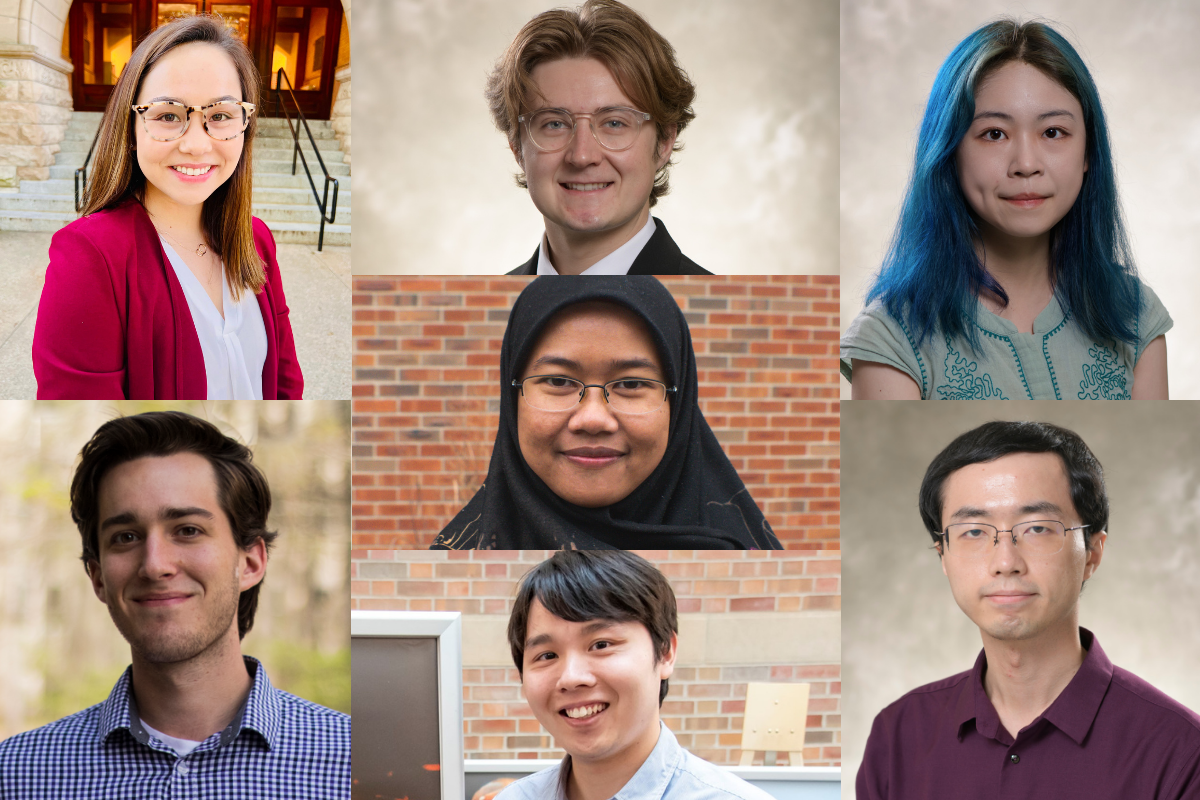 Modern problems require modern solutions. No one knows this better than students at the Beckman Institute for Advanced Science and Technology, who welcome the opportunity face their research questions with an interdisciplinary approach.
Modern problems require modern solutions. No one knows this better than students at the Beckman Institute for Advanced Science and Technology, who welcome the opportunity face their research questions with an interdisciplinary approach.
The Beckman Institute Graduate Fellowship funds students committed to pursuing interdisciplinary research projects. This year’s cohort draws on the fields of chemistry, electrical engineering, entomology, physiology, and more to target outstanding research questions.
The class of 2023 includes: Siti Fauziyah, entomology; Alexander Fliflet, kinesiology and community health; Michael Pence, chemistry; Chelsea Swartchick, chemistry; Gang Xiao, molecular and integrative physiology; Shenshang Zhao, electrical and computer engineering; and Lingxiao Yang, electrical and computer engineering.
Read on to learn more about this year’s fellows:
Michael Pence is pursuing his Ph.D. in chemistry. He earned his B.S. in chemistry from Indiana University in 2019.
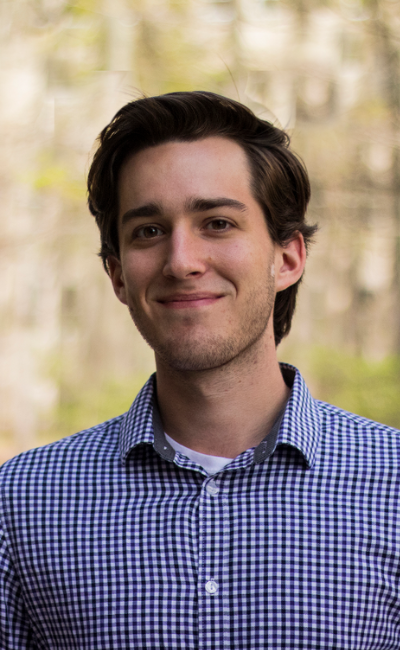 Michael Pence, a Ph.D. student in chemistry.
Michael Pence, a Ph.D. student in chemistry.
Pence’s proposed work aims to streamline the process for optimization of electrochemical transformations through an automated electrochemistry platform, called the Electrolab. Pence will use the Electrolab to screen conditions for oxidization of common biomass byproducts, such as glycerol and polyols, a process that leads to value-added chemicals. The top-performing electrochemical catalysts employed in these reactions will be converted to redox-active polymers, a process that allows for their recovery and reuse after each iteration of the discovery process. In total, Pence’s work will provide a novel platform for screening one-pot electrochemical reactions on byproduct mixtures, using a process that is automated and easily screened for catalyst activity.
Pence will collaborate with Joaquín Rodríguez-López, an associate professor of chemistry; Charles Schroeder, a professor of materials science and engineering; Jeffrey Moore, a professor emeritus and the Stanley O. Ikenberry Research Professor of Chemistry; and Nick Jackson, an assistant professor of chemistry.
Lingxiao “Lilian” Yang is pursuing her Ph.D. in electrical and computer engineering. She earned her M.S. in electrical and computer engineering from UIUC in 2021 and her B.E. in electronic engineering in 2018 from the University of Hong Kong. She is the recipient of the 2023 Thomas and Margaret Huang Graduate Fellow award.
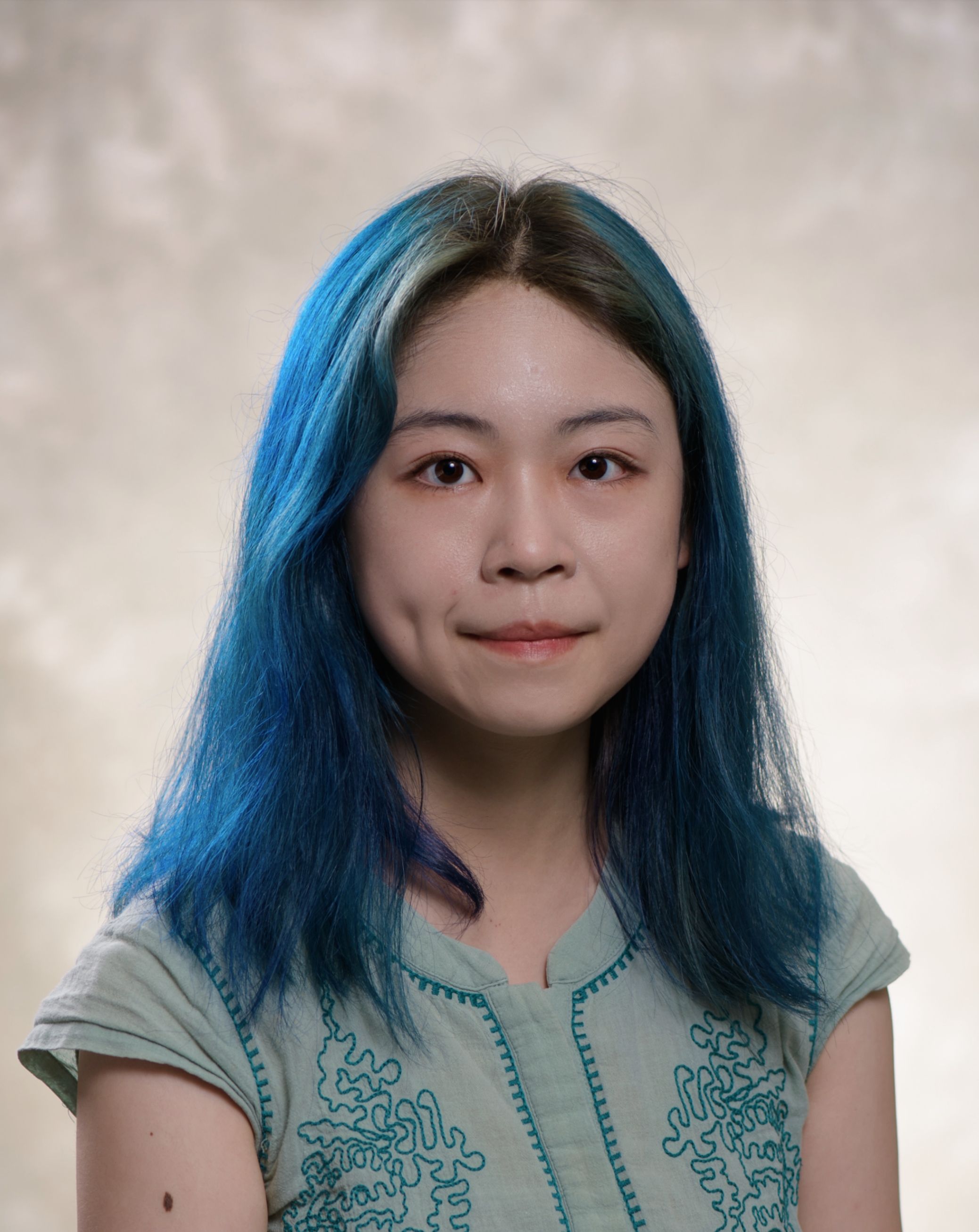 Lilian Yang, a Ph.D. student in electrical and computer engineering.
Lilian Yang, a Ph.D. student in electrical and computer engineering.
Yang’s project will develop a novel multimodal imaging technique for the visualization of collagen subtypes in biological tissues. Collagen is a prevalent structural protein found in connective tissues throughout the body. However, its role in tumor formation in cancer phenotypes remains unknown, largely due to challenges associated with its visualization. Yang’s proposed technique will draw on a multitude of microscopy modalities to overcome this challenge, including optical coherence microscopy, two-photon fluorescence lifetime imaging, and Raman scattering microspectroscopy. Ultimately, Yang hopes to use this imaging modality to develop novel multidimensional analysis strategies for tumor imaging and to determine collagen-associated cellular signatures for tumor growth.
Yang will collaborate with Stephen Boppart, a professor of electrical and computer engineering and bioengineering, director of the Biophotonics Imaging Laboratory, and interim director of the Interdisciplinary Health Sciences Institute; and Rohit Bhargava, a professor of bioengineering and director of the Cancer Center at Illinois.
Shensheng Zhao is pursuing a Ph.D. in electrical and computer engineering. He received his B.E. in precision machinery and instrumentation from the University of Science and Technology of China in 2018.
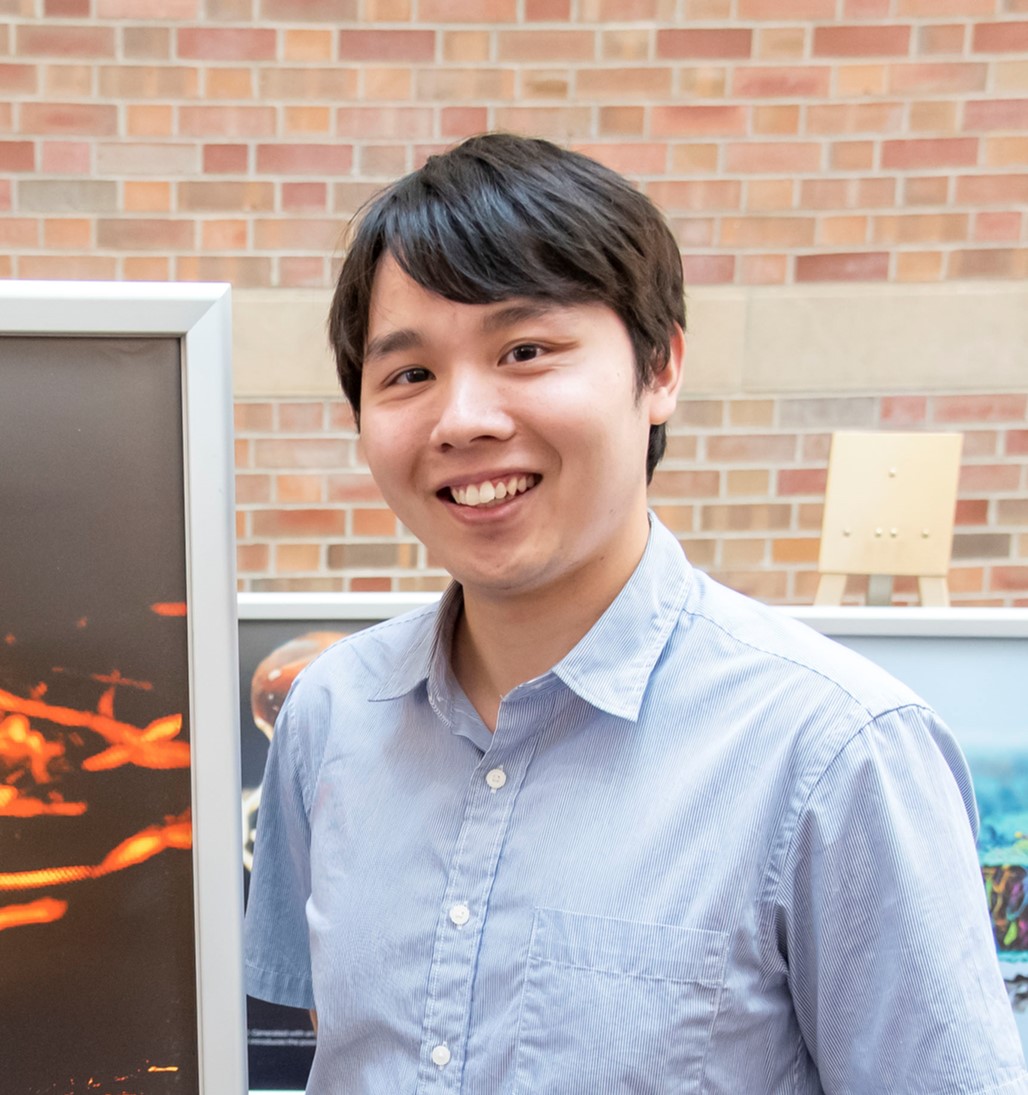 Shensheng Zhao, a Ph.D. student in electrical and computer engineering.
Shensheng Zhao, a Ph.D. student in electrical and computer engineering.
Zhao’s research is focused on developing a novel cancer therapy, called mechanochemical dynamic therapy, which relies on nanoparticles loaded with therapeutic molecules that can be broken through ultrasound agitation to produce free cancer-killing radical species with high depth penetration and accuracy. Zhao’s work aims to investigate the treatment efficacy of MDT by monitoring the treatment process through the guidance of multimodality imaging techniques. He will develop an integrated multimodality imaging platform with therapeutic ultrasound system, expected to offer pre-therapy planning, dosimetry optimization during therapy, and post-therapy outcome assessment for MDT.
Zhao will collaborate with Yun-Sheng Chen, an assistant professor of electrical and computer engineering; King Li, a professor emeritus at the Carle Illinois College of Medicine; and Jeffrey Moore, a professor emeritus and the Stanley O. Ikenberry Research Professor of Chemistry.
Siti Fauziyah is pursuing a Ph.D. in entomology. She earned her M.S. in molecular biology and evolution in 2020 from Christian Albrechts Universitat zu Kiel in Germany and her B.S. in biology in 2015 from Gadjah Mada University in Indonesia.
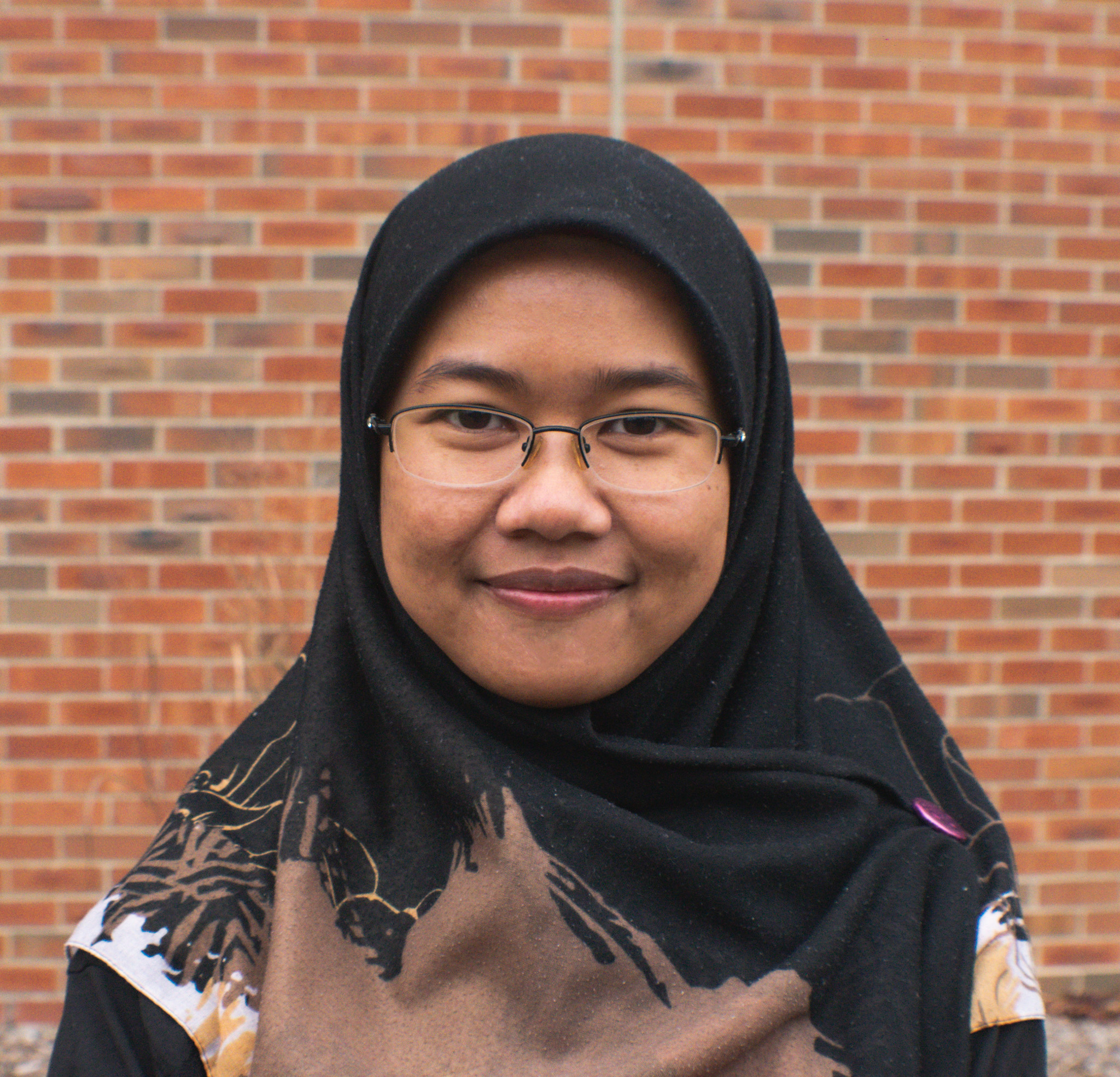 Siti Fauziyah, a Ph.D. student in entomology.
Siti Fauziyah, a Ph.D. student in entomology.
Fauziyah’s proposed work will examine the differences in wing composition for migratory and non-migratory dragonflies, at both the micro- and macro- scales. It is hypothesized that migratory dragonflies require more robust wings to enable their migratory patterns, which can span entire continents. These morphological variations take many forms, including changes to wing geometry, wing blood vessel organization, and mechanical properties such as wing stiffness or susceptibility to deformation. Fauziyah will use a comparative approach to catalogue and measure these properties across populations of migratory and non-migratory dragonfly species. In addition to shedding light on insect wing morphology, Fauziyah anticipates this work could inspire design of novel light-weight materials and unmanned aerial vehicles.
Fauziyah will collaborate with Marianne Alleyne, an assistant professor of entomology; Francesco Panerai, an assistant professor of aerospace engineering; and Philip Anderson, an associate professor of integrative biology.
Chelsea Swartchick is pursuing her Ph.D. in organic chemistry. She earned her B.S. in chemistry with a biochemistry concentration from University of Portland in 2019.
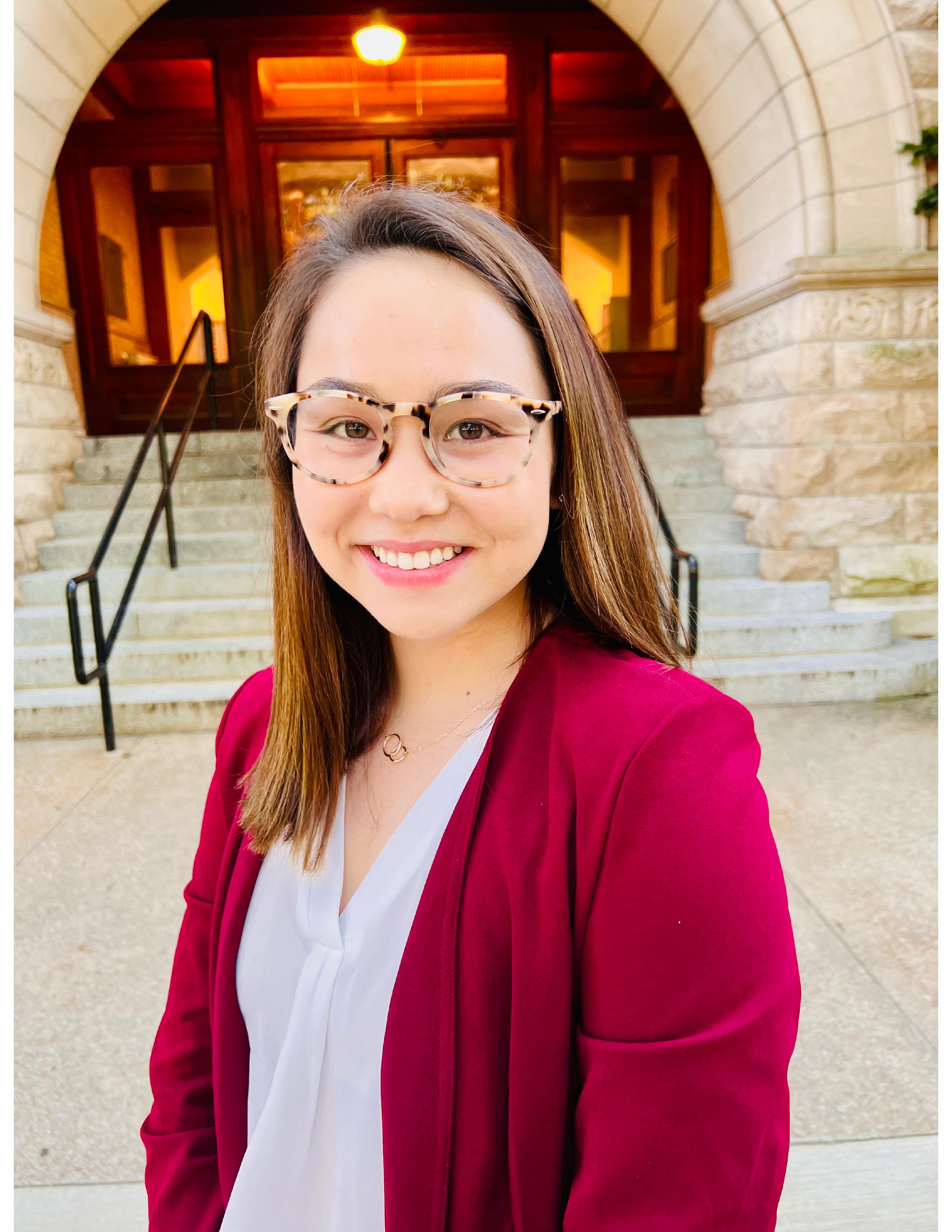 Chelsea Swartchick, a Ph.D. student in chemistry
Chelsea Swartchick, a Ph.D. student in chemistry
Swartchick’s proposed research is focused on developing a novel therapeutic intervention for diabetes patients. The most prevalent form of diabetes, Type 2 diabetes, is defined by resistance to insulin signaling pathways in the liver along with downregulation of heat shock proteins, which protect cells from various stressors like UV radiation, hypoxia, and extreme temperatures. Swartchick aims to synthesize a liver-targeting nanoparticle containing a photothermal therapeutic agent, which is designed to induce a heat-shock response in liver cells, thereby upregulating production of protective heat-shock proteins and improving sensitivity to insulin.
Swartchick will collaborate with Jefferson Chan, an associate professor of chemistry; and Wawrzyniec Dobrucki, an associate professor of bioengineering and head of the Beckman Experimental Molecular Imaging Laboratory.
Alexander Fliflet is pursuing his Ph.D. in kinesiology and exercise physiology. He earned his M.S. in kinesiology from UIUC in 2021 and his B.S. in molecular and cellular biology from UIUC in 2019.
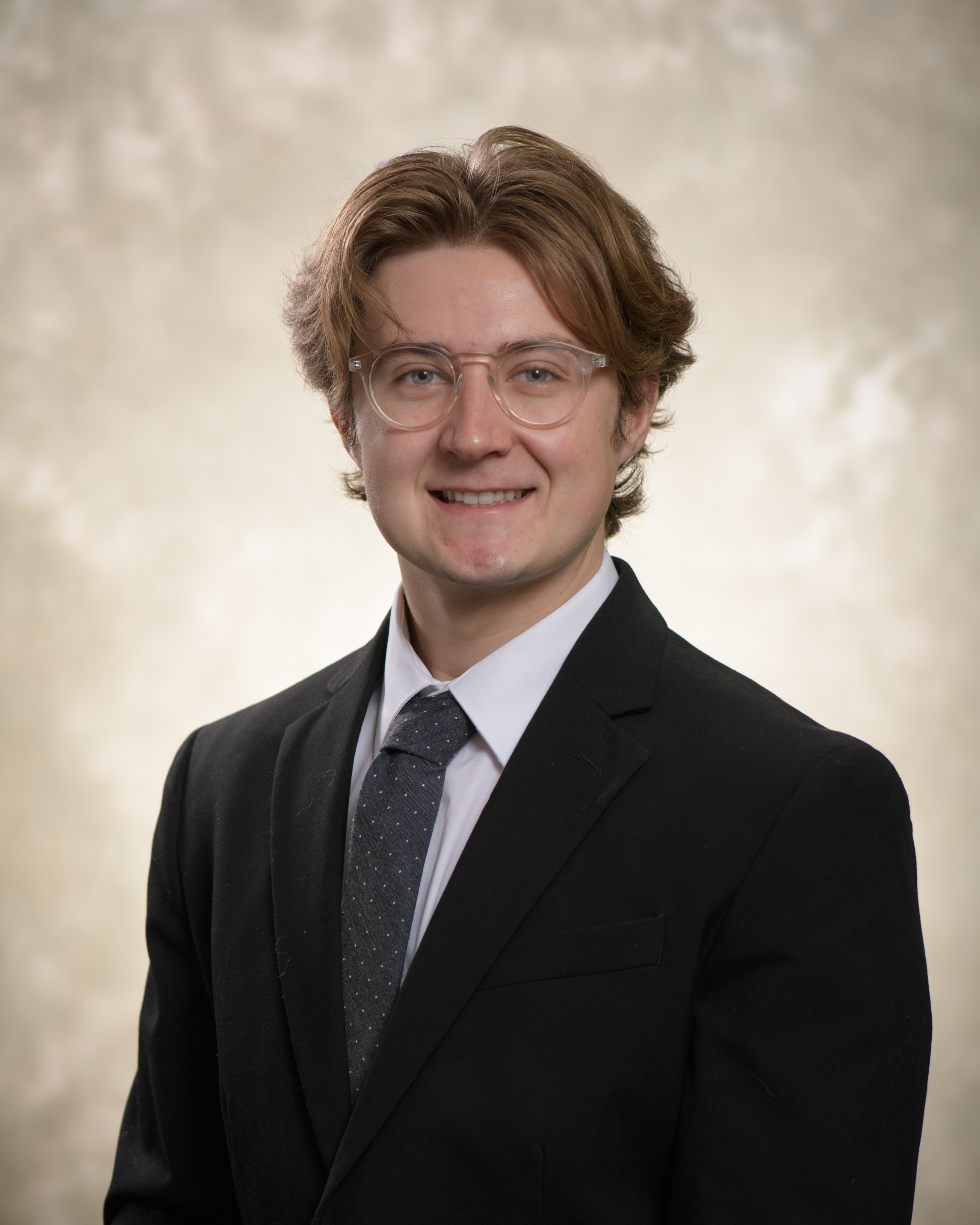 Alex Fliflet, a Ph.D. student in kinesiology and exercise physiology
Alex Fliflet, a Ph.D. student in kinesiology and exercise physiology
Fliflet’s research will investigate solutions for vascular dysfunction arising from periods of minimal physical activity or low gravity environments. In particular, the proposed work will aim to develop therapy for both astronauts operating in low gravity environments and patients on medical bedrest. Filflet’s preliminary studies have shown that mice who have recently exercised secrete lipid-based nanoparticles that encapsulate a unique combination of pro-angiogenic factors that encourage whole-body vascular health. The project aims to assess the utility of autologous supplementation of these nanoparticles to facilitate maintenance of vascular health during extended periods of inactivity.
Fliflet will collaborate with Marni Boppart, a professor of kinesiology and community health; Joon Kong, a professor of chemical and biomolecular engineering; and Wawrzyniec Dobrucki, an associate professor of bioengineering and head of the Beckman Experimental Molecular Imaging Laboratory.
Gang Xiao is pursuing a Ph.D. in Molecular and Integrative Physiology. He earned his M.S. in audiological science in 2018 from University College London, his M.Res. in molecular and cellular biology in 2016 from Imperial College London, and his B.S. in biological science in 2015 from Zhejiang University.
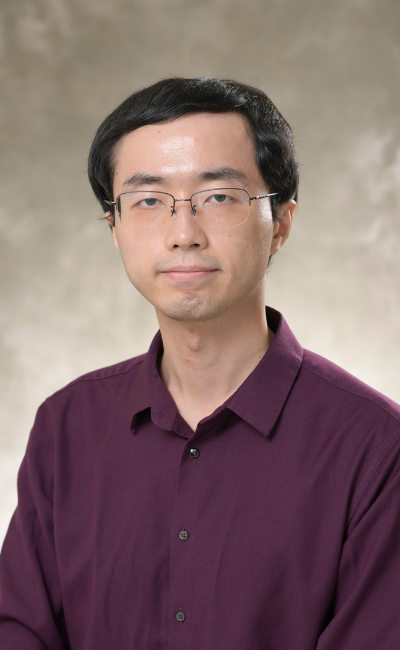 Gang Xiao, a Ph.D. student in molecular and integrative physiology
Gang Xiao, a Ph.D. student in molecular and integrative physiology
Gang’s research will untangle the complex neurological signaling pathways involved in brains responding to specific tasks. He will use multiphoton microscopy to image a region of the brain that interfaces with the auditory cortex to process auditory input, called the inferior colliculus. The project will compare microscopic organization of the neurons and axons making up the inferior colliculus in mice that choose between drinking water from one of two tubes, as indicated by an auditory cue. Furthermore, he aims to determine not only how the neurons of the inferior colliculus respond during the task engagement process, but also how these neurons respond to signals from other auditory processing units, such as the axons of the primary auditory cortex.
Gang will collaborate with Dr. Daniel Llano, a professor of molecular and integrative physiology; Howard Gritton, an assistant professor of neuroscience and comparative biosciences; and Pengfei Song, an assistant professor of electrical and computer engineering.
The Beckman Institute Graduate Fellows Program offers University of Illinois graduate students at the M.A., M.S., or Ph.D. level the opportunity to pursue interdisciplinary research at the institute. The program is supported by funding from the Arnold and Mabel Beckman Foundation.
Beckman Institute for Advanced Science and Technology